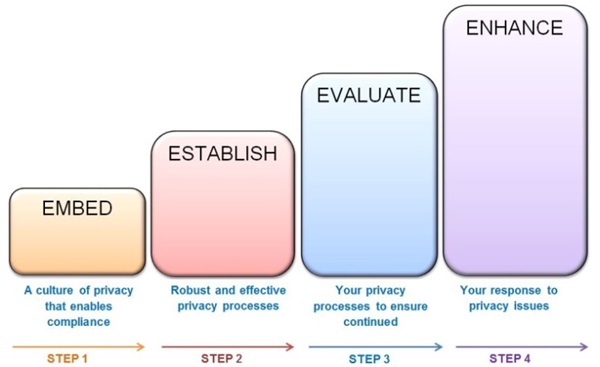

These principles are centred around the concepts of accountability, and of the processing being lawful, fair and transparent. To conclude, EU GDPR requirements are based on principles. See the article Implementing three main accountability principles under EU GDPR. This means that the companies should be responsible in their actions relating to the processing of personal data, take ownership of what they do, and demonstrate evidence of all decisions made in the context of personal data processing. And, the responsibility to demonstrate compliance with this principle shall always rest with the controller. The expectation that companies are fair, transparent and processing personal data lawfully eventually leads to accountability, which is a framework of self-discipline among companies. 8 data subject rights according to GDPR.Is consent needed? Six legal basis to process data according to GDPR.EU GDPR requires companies to practice transparency so that data subjects will be sufficiently informed regarding the processing of their personal data.īesides these principles, it is also important to understand how GDPR defines the data subjects’ rights, and the legal basis for processing – see these articles for detailed explanations: This means that personal data should be processed if, and only if, there is a legitimate purpose for the processing of that personal data. Also, companies should be transparent regarding the processing of personal data, and inform the data subject in an open and transparent manner. GDPR asks that all personal data processing should be fair that is, companies do not perform processing that is not legitimate. This is not simple, and needs to be determined in line with applicable laws that may sometimes require personal data to be retained for a longer period than the originally envisaged processing purpose.Ħ) Fair and transparent. That is, personal data should be deleted once the legitimate purpose for which it was collected has been fulfilled. Personal data should be retained only while necessary.
#BASIC DATA PRIVACY PRINCIPLES PDF#
Also, controllers must ensure that data cannot be modified by unauthorised persons.įree document with the official text of the Regulation in PDF format Download nowĥ) Storage limitation. Personal data must be processed in a way that ensures appropriate security, including protection against unauthorised or unlawful processing.
#BASIC DATA PRIVACY PRINCIPLES UPDATE#
This is simple and straightforward, meaning that controllers are asked to ensure that data is kept accurate, and data subjects can update their data when required.Ĥ) Integrity and confidentiality. Personal data of data subjects must always be accurate and kept up to date. It will be important to limit the analysis of data to a set of anonymised data, or to a set of data for which consent has been obtained or there is a clear legitimate processing purpose.ģ) Accuracy. This is of significance when your company is analysing data. This means that no data other than what is necessary can be requested, or stored. When collecting data, only the personal data absolutely required for that purpose may be requested. This effectively forbids the processing of personal data outside of the legitimate purpose for which the personal data was collected.Ģ) Data minimisation. Processing of personal data must be limited to the legitimate purpose for which that personal data was originally collected from the data subject. GDPR lists six legitimate purposes, and processing of personal data must be linked to one of these.ġ) Purpose limitation. Now, what does this mean? Lawful means that all processing should be based on a legitimate purpose. The companies that process personal data are expected to do so in a lawful manner.

As these principles form the basis of the GDPR requirements, let us understand what they are. As part of the effort to implement the regulation, it is important to understand key GDPR principles that are stated in Articles 5-11 of the GDPR text. The new General Data Protection Regulation (GDPR) states that processing of all personal data should be aligned with the principles defined in the regulation.


 0 kommentar(er)
0 kommentar(er)
